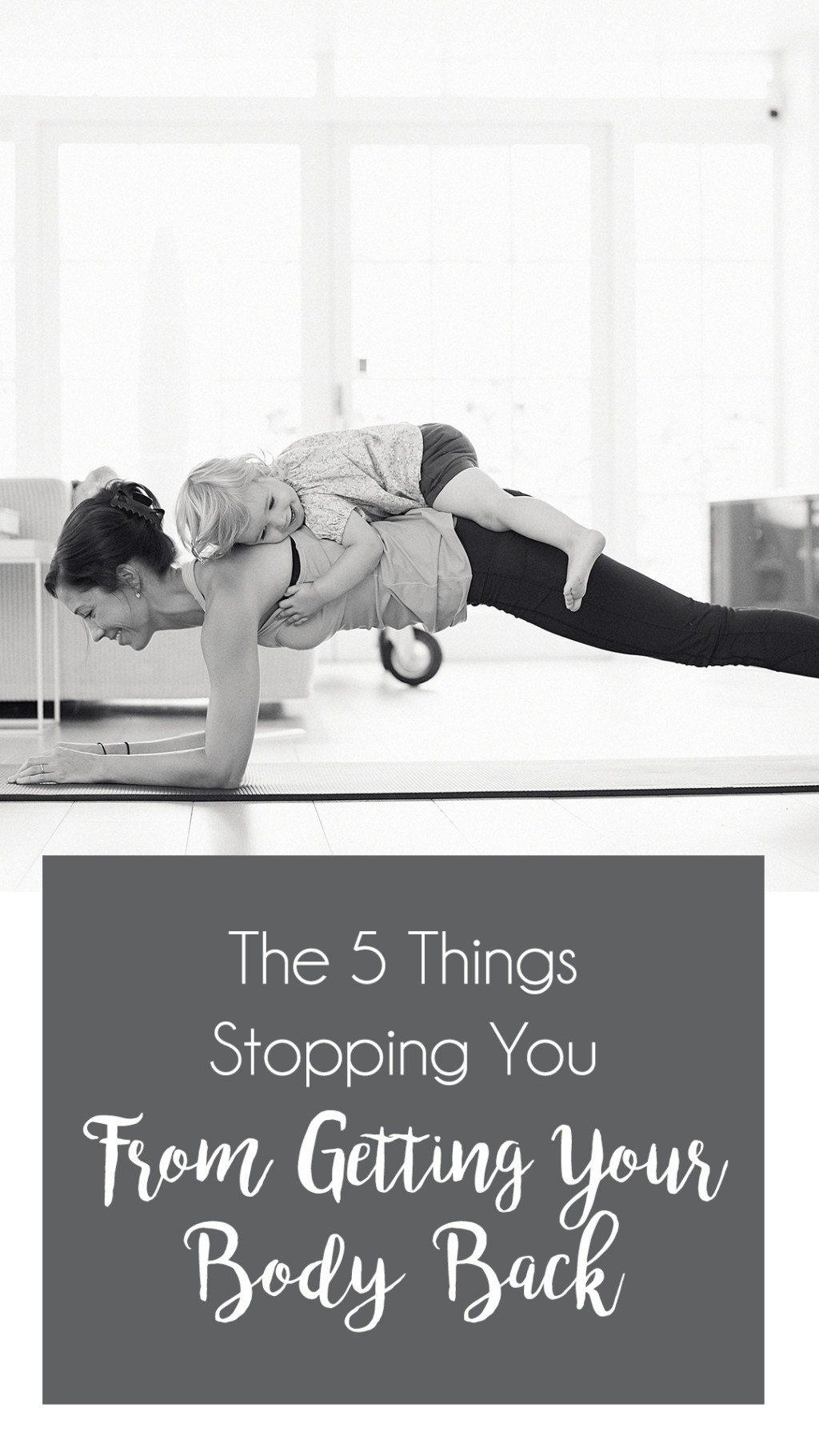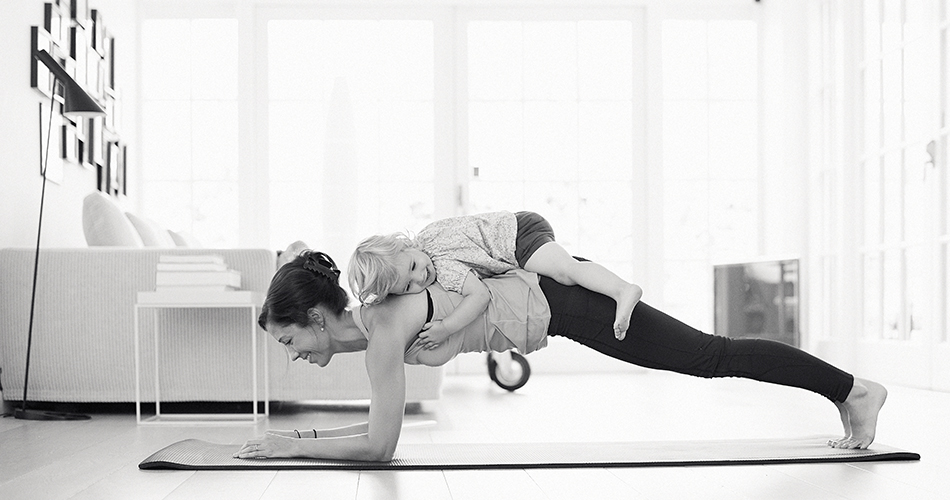
Getting your body back. This is always a topic of discussion, and I believe it always will be. Honestly, who doesn’t want their body to go back to the way it was before having a kid?
On the rare occurrence when you aren’t exhausted and your new addition to the family is napping, it may be that you can get back into a workout routine without any difficulties or problems.
There are many avenues available to try to get back in shape – videos, trainers, bootcamp classes, etc. These are all excellent as long as your body is responding positively. So, how do you know if your body is doing that?
I want to discuss the ‘common, but not normal’ changes you may feel as you are returning to being more active.
 1. Back Pain
1. Back Pain
Back pain is extremely common during pregnancy and postpartum. It is most commonly due to the lack of core support after delivery. Your abdominal wall and pelvic floor muscles undergo vast changes during 9 months and then labor. These muscles need to be properly engaging and supporting your trunk for your back pain to resolve. This can take several weeks and can worsen if you are not using these muscles properly.
2. Diastasis Recti
This is a term used to describe the lengthening of connective tissue between the rectus abdominis muscles, or the ‘6 pack’ muscles. This can create gapping in the front of the abdominal wall which can lead to hernias, back pain and even injuries. Again, this can worsen if you are not supporting your trunk properly.
3. Pelvic Pressure
If you feel a ‘heaviness’, a ‘falling out’ sensation, or even feel like something is ‘down there’, you may be experiencing a prolapse. This is a term used to describe the lowering of organs within the trunk that can collapse the vaginal canal. It can range from minor to severe with varying grades, but typically is very treatable.
4. Pelvic Pain
This is a common complaint I hear when couples resume intercourse. This can be due to many things, but I would like to highlight scar tissue as a primary cause. After delivery, specifically if you have experienced a perineal tear during delivery or had a c-section, scar tissue can heal to be very stiff and immobile. This can cause pain with applied pressure (such as intercourse), muscle contractions, or even use of tampons. You may feel this at the entrance of the vaginal canal or deep within; again, this is very treatable! Intercourse should never be painful and you should be able to resume sex without these complications!
5. Urinary Incontinence
This occurs when there is urinary leakage that occurs out of your control. Very common during working out, bending, lifting, coughing, sneezing, etc. However, this is also extremely treatable! It is a common misconception to think this is ‘normal’ after you have given birth. Yes, it is common, but not normal. You should return to a normal bladder routine without leakage if properly strengthened.
These are just a few of the most common complaints I hear the most from my patients. Here is the good news. Most often, especially when caught early, these are all very easily treated with the right program.
I want to make it clear that you should not be afraid to exercise after you have had a baby!
But…
If you are experiencing any of these symptoms, please seek a medical professional who is trained in how to correct these issues so you can resume a healthy and active lifestyle.
Who is trained to treat this?
Always speak to your OBGYN regarding any concerns. Usually, they will be able to refer you to a pelvic floor physical therapist. A physical therapist who is specially trained to treat these conditions will be able to assess, treat, and give you safe and progressive exercises to help you meet your goals.
Did you know…?
In Florida, you can see a physical therapist without a physician referral for up to 30 days. This means you can make an appointment with a physical therapist who specializes in pelvic floor rehabilitation with individual insurance coverage without any additional requirements.
If you have any questions or would like to learn more, please contact Bri at Activcore Physical Therapy and Performance located in Lake Nona, Orlando.
 Guest post BIO:
Guest post BIO:
Bri McCormick PT, DPT received her BS degree in Health and Exercise Science with a concentration in Sports Medicine from Colorado State University in Colorado in 2010. There, she participated in musculoskeletal and biomechanical research for the university and regularly volunteered for a facility specializing in hippo-therapy. Once graduated, she moved to Orlando to attend the University of Central Florida where she received her Doctorate in Physical Therapy in 2014. During her graduate program, her clinical rotations included an acute ICU setting, outpatient orthopedic, and a center specializing in pelvic floor disorders. She has since taken several specialized courses in the advanced evaluation and treatment of pelvic floor physical therapy for both men and women and has continued to work in an outpatient setting. Bri has worked in the development in Pelvic Health programs for different locations in Central Florida and has a passion for outreach and education.
In her free time, Bri loves to travel with her boyfriend and spend time with her 2 dogs. She enjoys riding horses, reading, and a good glass of wine.



















